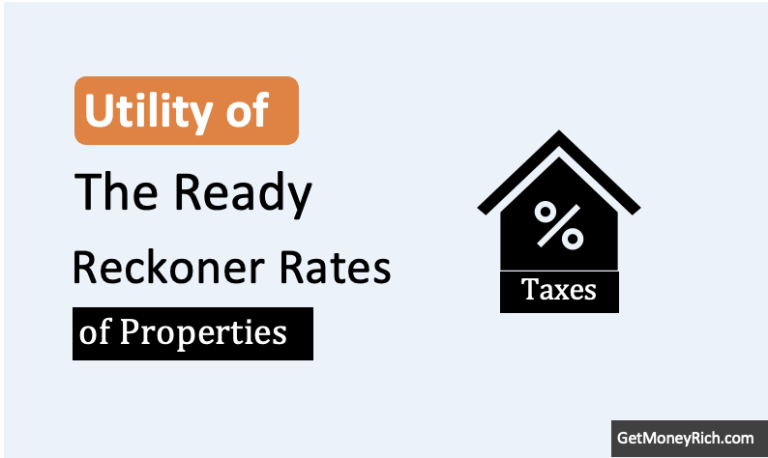Investing in real estate is a classic wealth-building approach. For most Indians, buying a home, office space, or land is considered the ultimate investment. But there’s another option that offers exposure to real estate without the hassle of ownership: Real Estate Investment Trusts (REITs).
I prefer REITs over physical real estate for a few key reasons. Let’s explore those reasons in detail, keeping it simple for anyone who wants to understand both investment options.
What is a REIT? Imagine a group of people pooling their money to buy and manage multiple properties like office buildings, shopping malls, or warehouses. These properties generate rental income, which is gets distributed among the group in a specific proportions.
That’s what a REIT does.
A REIT is a company that owns, operates, or finances income-generating real estate properties.
You can buy REIT units (similar to shares) on the stock market, just like buying shares of any company.
For example, Embassy Office Parks REIT is India’s first listed REIT. It owns large office spaces rented out to big companies like Google, Microsoft, and IBM.
When these companies pay rent, REIT investors get a part of that rental income.
Difference Between a REIT and a Physical Real Estate Property
| Description | REIT | Physical Real Estate Property |
|---|---|---|
| Investment Cost | Starts as low as Rs.500 per share | Requires lakhs to crores of rupees |
| Liquidity | Highly liquid; can be sold instantly on stock exchanges | Illiquid; selling takes weeks or months |
| Diversification | Diversified across multiple properties | Money is concentrated in one or two properties |
| Management | Professionally managed by REIT managers | Self-managed; involves dealing with tenants, repairs |
| Income Generation | Regular dividends from rental income | Rental income if property let-out |
| Entry and Exit | Easy to enter and exit through a trading platform | Complex entry and exit with legal processes (registration) |
| Risk Exposure | Lower risk through diversification | Higher risk due to reliance on single asset |
| Maintenance Costs | No direct maintenance costs for investors | High maintenance, repairs, and upkeep costs |
| Regulation | Regulated by SEBI (transparent) | Less regulated; prone to opaque dealings |
| Taxation | Partially tax-efficient dividends | Rental income fully taxable after deductions |
| Ownership Type | Indirect ownership (units/shares) | Direct ownership of physical property |
| Flexibility | Can sell partial units | Cannot sell part of a property |
| Returns | Market-driven; linked to rental income & property values | Driven by rental income and property’s price appreciation |
Why I Prefer REITs Over Physical Properties
1. Liquidity: Easy to Buy and Sell
Liquidity refers to how quickly and easily you can convert an investment into cash without losing value.
REITs are highly liquid because they are listed on stock exchanges like NSE and BSE. You can buy or sell REIT units with just a few clicks through your trading account, similar to how you trade stocks.
If you suddenly need cash for an emergency, you can sell REIT units worth any amount, whether it’s Rs.500 or Rs.5 lakh, almost instantly. The sales proceed will get credited to you bank account by the next trading day (T+1 settlement cycle) be in your account within a couple of days.
In contrast, physical real estate is very illiquid.
Selling a flat, shop, or plot involves multiple steps: finding the right buyer, negotiating the price, arranging paperwork, and completing legal formalities.
This process can take weeks or even months, depending on market conditions. Additionally, if you need only a portion of the cash (e.g., Rs.5 lakh), you cannot sell just a part of your property.
You have to sell the entire asset, making it an all-or-nothing scenario. This lack of flexibility makes physical property a difficult option when you need quick cash.
2. Diversification: Spread Your Risk
When you invest in a REIT, you automatically gain exposure to a portfolio of different properties across various locations and types. In a REIT, there are multiple property types like office buildings, shopping malls, and warehouses.
For example, Embassy Office Parks REIT owns over 40 office properties in cities like Bengaluru, Mumbai, and Pune. If one building has trouble finding tenants or suffers a decline in rental income, the other properties can compensate, helping to stabilize your returns.
This broad exposure makes REITs a safer and more balanced investment.
On the other hand, when you invest in a physical real estate property, your entire investment is tied to a single asset.
- If you buy a flat in Mumbai and property values in that area decline due to low demand or oversupply, your investment suffers significantly.
- You are also vulnerable to local risks like changes in infrastructure, government policies, or market conditions.
Diversification with REITs helps protect your investment from such concentrated risks, providing a cushion against unpredictable real estate market fluctuations.
3. Lower Investment Cost
One of the key advantages of investing in REITs is the significantly lower investment cost compared to physical real estate.
You can start investing in REITs for as little as Rs.500.
For example, the share price of Embassy REIT is around Rs.375, Brookfield REIT is approximately Rs.277, and Mindspace REIT is about Rs.360 per share.
This makes REITs accessible to young investors, bachelors, and those starting their financial journey. You can buy a few units with a small sum and gradually increase your investment over time.
In contrast, investing in a physical property is far more expensive.
Buying a residential flat or a commercial space typically costs Rs.50 lakh to Rs.1 crore or more in metro cities.
On top of this, you have additional expenses such as stamp duty, registration fees, legal charges, and maintenance costs, which can add up to 10% of the property value. For most young investors, saving such a large amount can take years.
REITs provide a more affordable way to benefit from real estate returns without locking up huge sums of money.
4. Regular Income Without Hassles & Higher Yields
Investing in REITs offers a hassle-free way to earn regular income with higher yields compared to physical residential properties.
By law, Indian REITs are required to distribute 90% of their rental income as dividends to investors.
For example:
- Embassy REIT offers a dividend yield of 5.82%,
- Mindspace REIT offers 5.49%, and
- Brookfield REIT currently has a yield of 0.74%.
These yields are significantly higher than the typical rental yield from residential properties, which is often below 2.5% in Tier-1 cities like Mumbai, Bengaluru, Delhi, or Pune
With REITs, you don’t have to deal with the complications of property management. There’s no need to handle tenants, maintenance, repairs, or legal disputes—the REIT’s professional management team takes care of it all.
Your role is purely that of an investor, enjoying passive income without stress.
On the other hand, owning a physical property comes with responsibilities. You must find tenants, deal with repairs, collect rent, and handle any disputes. If the property remains vacant, you lose income while still paying maintenance costs.
REITs simplify this process, offering reliable income with minimal effort.
5. Transparency and Regulation
One major advantage of REITs is the high level of transparency and regulation they offer.
In India, REITs are governed by SEBI (Securities and Exchange Board of India), which ensures they follow strict guidelines for operations, reporting, and disclosure.
By law, REITs must regularly publish detailed financial reports, including updates on rental income, occupancy rates, and the valuation of properties. This information is publicly available, allowing you to make informed investment decisions.
You know exactly which properties the REIT owns, the revenue they generate, and the expenses involved. This clarity makes REITs a more secure and trustworthy investment.
In contrast, the physical real estate market in India is often opaque.
Property transactions may lack transparency, with unclear pricing, hidden costs, or incomplete information.
Legal issues related to property titles, encroachments, or disputes are common and can be difficult to resolve.
Additionally, developers and agents might not provide accurate data on rental yields or market conditions. This lack of clarity can lead to financial risks or disputes.
Investing in REITs, therefore, reduces uncertainty and provides peace of mind due to better regulation and accountability.
6. Tax Efficiency
Tax efficiency is another area where REITs have an advantage over physical properties.
- Dividends from REITs have two components: taxable and tax-free portions.
- According to the latest Indian tax rules, if the REIT receives rental income that has already been taxed at the source. The dividend distributed to investors is tax-free. However, any part of the dividend not taxed at the source is taxed at your applicable income tax slab.
- If you sell REIT units at a profit, the capital gains are taxed at 15% for short-term gains (if held for less than 3 years) and at 10% for long-term gains (if held for more than 3 years). There is an exemption of up to ₹1 lakh annually on long-term gains.
In contrast, rental income from physical property is fully taxable.
- After a standard deduction of 30%, the remaining rental income is added to your total income and taxed as per your income tax slab.
- When you sell a property, the capital gains tax applies, 20% with indexation benefits for long-term gains (if held for over 2 years), and short-term gains are taxed as regular income.
The tax rules make REITs more efficient and simpler for investors to manage.
Conclusion
REITs and physical property both offer paths to wealth creation.
For most young Indians, starting with REITs makes more sense. It allows you to invest in real estate while keeping things simple and flexible.
If you want to invest smartly, remember: it’s not just about owning property but about making your money work efficiently.
If you found this article useful, please share it with fellow investors or leave your thoughts in the comments below!
Have a happy investing.



![Home Construction Loan: What is The Process To Get Such Loans [India]](https://ourwealthinsights.com/wp-content/uploads/2013/08/Home-Construction-Loan-image.jpg)


Mr Mani
Thank you for regualr up dates on vaied modes of investments in stocks ,gold real estatethrough REIT with detailed analysis .
Apart from this on updates about paticular stocks which have either gone up or down and tax mattters on capital gains ,balance sheet analysis like enterprise value and allied parameters Thank you
Thanks